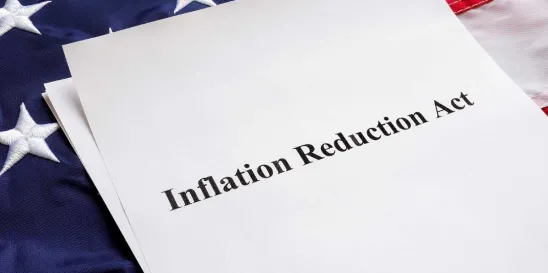Our team’s preparation for the year includes a review of the anticipated impact of the IRA on the health care industry in 2024. Many of the IRA’s key provisions that go into effect this year are centered around two main goals: (1) lowering drug costs by permitting the federal government to negotiate drug prices for certain high-expenditure Medicare Part D Drugs (the “Negotiation Program” or “Program”), and (2) reducing out-of-pocket prescription drug costs for Medicare Part D beneficiaries via a redesign of the Part D benefit.
Medicare Drug Price Negotiation Program
No less than nine separate lawsuits were filed against the Negotiation Program in 2023, alleging various aspects of the Program as being unconstitutional or unenforceable. We discuss the status of the ongoing legal challenges brought against the Program in our article Legal Challenges to the Medicare Drug Price Negotiation Program Continue.
As background, in late September 2023, a federal court rejected a request to block implementation of the Program, so as of the date of publication, the Program will proceed as scheduled. As we previously covered, on August 29, 2023, CMS selected the first 10 high-expenditure, single source, Medicare Part D drugs (“Selected Drugs”) for negotiation, with the negotiated price expected to take effect January 1, 2026. In 2024, CMS and the manufacturers of the Selected Drugs will negotiate the maximum fair price (MFP) for each selected drug. The key dates for the MFP negotiation process are as follows:
- February 1, 2024: CMS sent initial offers to manufacturers of the Selected Drugs. CMS will not publish information about the offers or negotiation process, but companies may choose to publicize this information.
- March 2, 2024: Manufacturers must either accept the initial offer of the MFP or propose a counteroffer.
- Spring/Summer 2024: If CMS does not accept the drug manufacturer’s counteroffer, CMS will offer up to three negotiation meetings with the manufacturer to reach an agreement on the MFP prior to the end of the negotiation period.
- August 1, 2024: The negotiation period ends.
- September 1, 2024: CMS will publish the negotiated MFPs for each of the Selected Drugs.
CMS plans to publish an explanation of the agreed-upon MFP and the negotiation process for each Selected Drug but will not make this information available until March 2025.
Part D Benefit Redesign
Effective January 1, 2024, the IRA made several changes to the Medicare Part D benefit design to reduce out-of-pocket costs and improve access to prescription drug coverage for Medicare Part D beneficiaries:
- Low-Income Subsidy Expansion. Eligibility for the full low-income subsidy was expanded to Medicare Part D beneficiaries with income up to 150% of the Federal Poverty Limit (FPL). Those who are eligible for the subsidy will no longer have to pay premiums or deductibles for their prescription drug coverage.
- Elimination of 5% Coinsurance. Medicare beneficiaries who reach the catastrophic coverage threshold of their Part D drug coverage will no longer be responsible for 5% coinsurance or co-payments. Part D plans will be required to pay 20% of total drug costs for Part D enrollees who reach the catastrophic coverage phase.
- Premium Stabilization. Part D premiums will not increase more than 6% from the prior year.
Other Developments to Watch For
Inflation Rebate Program. As we noted in our overview of the Medicare Prescription Drug Inflation Rebate Program (“Inflation Rebate Program”), the Inflation Rebate Program requires drug manufacturers to pay rebates to the Medicare Trust Fund if prices for certain Medicare Part B and Medicare Part D drugs increase faster than the rate of inflation. On December 14, 2023, CMS published revised guidance for the Medicare Part B Inflation Rebate Program and the Medicare Part D Inflation Rebate Program. The revised guidance provides clarification as to how inflation rebates will be calculated, including but not limited to:
- CMS’s plans to reduce inflation rebate amounts for Part B and Part D rebatable drugs that are experiencing a drug shortage or a severe supply chain disruption;
- CMS’s methods for calculating inflation rebate amounts in instances where certain data are not reported by drug manufacturers; and
- The process by which CMS will report inflation rebate amounts to drug companies and illustrative examples of how CMS will calculate inflation rebate amounts.
Part B Biosimilar Payment Cap. For new biosimilars administered on or after July 1, 2024, Medicare will limit Part B payment when average sales price (ASP) data is not available. Specifically, Part B payment for new biosimilars will be the lesser of (i) 103% of the biosimilar’s wholesale acquisition cost (WAC) or (ii) 106% of the lesser of the WAC or ASP of the reference biologic, or 106% of the MFP if the reference biologic is subject to negotiation under the IRA.



 />i
/>i

